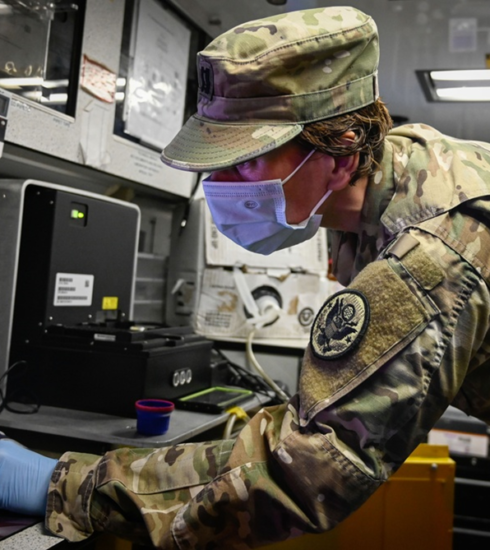Appeasement through Hollow Handshakes
Introduction
I
n recent years, intercontinental drug trafficking has reached a high. Despite its consequential effect on any society’s population, intercontinental drug trading can sometimes spark positive collaboration. In recent news, Ecuador and Belgium have signed a cooperation agreement that appears to resemble such collaboration. Considering Ecuador’s status as a cornerstone in the cocaine supply chain, such an agreement would be a big step towards striking major transit points in drug trafficking. However, in analyzing the agreement and other historical examples concerning intercontinental anti-drug collaborations, it appears that such an agreement is simply Ecuador’s attempt at appeasing governments and their citizens.
The Seized Shipment
The agreement signed between Ecuador and Belgium was introduced late February, after Ecuadorian police had seized nearly nine tons of drugs. [1] The cocaine was valued at $330 million and was headed for the Belgian port of Antwerp, one of Europe’s most lucrative entry points for drug trafficking. [2] Such illicit drug shipments are no rarity; approximately 17% of all U.S. bound cocaine passes through Ecuador. [3] This is because, although Ecuador produces few drugs, many other South American countries export their drugs through Ecuador ports as a means of transit. [4] Ecuador harbors west-bound drug routes that lead towards its ports. They are destined primarily for the U.S. and Antwerp, at which point the shipments are distributed to all of Europe.
The acknowledgement of this drug pathway out of Ecuador into Belgium is certainly not new. In 2020, by the end of September, a total of 40 tons of cocaine from Ecuador to Belgium had been seized. [5] These drug exports have caught the ear of thousands and have sparked many calls for change. For example, the Limburg public prosecutor in Belgium, alongside numerous high-ranking magistrates, met at the Federal Prosecutor’s Office to demand change. Furthermore, the Antwerp customs director is quoted as saying, “Corruption was affecting every level of the supply chain: Dock workers and crane operators, as well as customs officials and civil servants, were being paid off to look the other way” … ”More than 64,000 people work at the port of Antwerp, and 80,000 others depend on its activities.” [6] There is social unrest, in both Ecuador and Belgium, concerning drug trafficking. Many news sites portray the most recent cocaine bust as the “tipping point” for change.
A History of Hollow Change
However, similar “changes” have been made in the past; all in word, not action. One example was the Investigative Case Forum created between Ecuador, Belgium and Columbia. The forum, organized in 2019, gained popular attention over the two days it operated. It brought together 25 high-ranking representatives from the countries and, to the population, seemed to secure the possibility of change. [7] The forum came and passed, with no notable change in the situation. A similar comfort was provided to the population two years later, when Ecuador’s president declared a state of emergency and, for the first time, made a national announcement that, “there is only one enemy: drug trafficking.” [8] Excitement for change once again was raised but was quickly let go once no policy change was instituted.
The recent statement of collaboration between the two countries is equally as hollow. The collaboration reflects exactly what prior Investigative Case Forum was: an agreement to share information and be on similar terms. The collaboration, furthermore, is a Memorandum of Understanding, meaning it is bound in a formal document but does not legally bind either party. [9] It is simply meant to express a willingness to promote change. The positive news titles and photos of politicians blissfully shaking their hands paints a picture to the population that is not supported by practical change. This is a recurring cycle, concerning drug trafficking between these two countries.
This vague claim of cooperation with no details or follow-up is comparative to appeasement tactics performed by countless governments throughout history. The primary method of appeasement is to detail a good goal that is so far in the future that that the population is placated for an extended period. George W. Bush was accused of doing so when, in 2006, he claimed that America will “replace” more than three-quarters of its oil imports from the Middle East. [10] This form of appeasement is akin to a homeowner apologizing to his neighbor for having loud and noisy dogs, assuring the neighbor that he is training them and that it is simply a long process. Such a claim to potential change might calm the neighbor for a time, until the barking begins again.
Conclusion
The situation between Ecuador and Belgium is complex because, although drug trafficking harms both countries, it is a difficult cycle to stop. As mentioned, police forces are needing progressively more resources to tackle the violent impacts of drug trade, and customs border control is already fully overwhelmed. The mutual appeasement between these countries to their citizens is not rooted in a lie but, rather, that there is little they can do. After each summit, forum, and signed cooperation remain consistent pleas for resources that do not appear to be there entirely.
With the rates of drug trafficking on the rise and with little done to practically stop it, it is expected that the system will continue to spiral downwards. With drug-related homicides in Ecuador increasing by 180% after 2020, the prospects in the country are bleak, concerning drug violence. [11] Meanwhile, in Belgium, many higher-ups have recently sought police protection from narcotics gangs that they consider “more dangerous than the Islamic State.” [12] Despite the positive twist that media garners from the collaboration between the two countries, it appears to be no different than hollow words spoken with corporate smiles and handshakes.
[1] MercoPress, “Ecuador, Belgium sign cooperation deal against drug trafficking,” MercoPress, 28 February 2023, https://en.mercopress.com/2023/02/28/ecuador-belgium-sign-cooperation-deal-against-drug-trafficking
[2] Trajan Dereville, “THE PORT OF ANTWERP BECOMING EUROPE’S MAIN ENTRY POINT FOR ILLEGAL DRUGS,” EuropeDiplomatic, 2023, https://europe-diplomatic.eu/justice/crime/the-port-of-antwerp-becoming-europes-main-entry-point-for-illegal-drugs/.
[3] James Bargent, “Ecuador: A Cocaine Superhighway to the US and Europe,” InSight Crime, 30 October 2019, https://insightcrime.org/investigations/ecuador-a-cocaine-superhighway-to-the-us-and-europe/.
[4] CIA, “Ecuador,” CIA, 2023, https://www.cia.gov/the-world-factbook/countries/ecuador.
[5] France24, “Illicit drug trade at Belgian port fuels crime wave,” France24, 10 June 2020, https://www.france24.com/en/20201006-illicit-drug-trade-at-belgian-port-fuels-crime-wave.
[6] Elian Peltier, “Belgian Port City Grapples With a Flood of Cocaine,” Reuters, 21 February 2012, https://www.nytimes.com/2021/12/04/world/europe/belgium-antwerp-cocaine.html.
[7] United Nations, “CRIMJUST organizes Investigative Case Forum between the Republic of Ecuador, the Republic of Colombia and the Kingdom of Belgium,” United Nations, 6 November 2019, https://www.unodc.org/unodc/en/drug-trafficking/crimjust/news/crimjust-organizes-investigative-case-forum-between-the-republic-of-ecuador–the-republic-of-colombia-and-the-kingdom-of-belgium.html.
[8] The Guardian, “Ecuador’s president declares state of emergency over drug trafficking,” The Guardian, 19 October 2021, https://www.theguardian.com/world/2021/oct/19/ecuador-president-declares-emergency-drug-trafficking.
[9] CFI, “Memorandum of Understanding (MOU),” CFI, 2012 , https://corporatefinanceinstitute.com/resources/valuation/memorandum-of-understanding-mou/.
[10] George F. Will, “George F. Will: State of the government: appeasing citizens,” DeseretNews, 5 February 2006, https://www.deseret.com/2006/2/5/19936149/george-f-will-state-of-the-government-appeasing-citizens.
[11] Crisis Group, “Ecuador’s High Tide of Drug Violence,” Crisis Group,4 November 2022, https://www.crisisgroup.org/latin-america-caribbean/andes/ecuador/ecuadors-high-tide-drug-violence.
[12] Stephen Rae, “Drugs, violence and organized crime in Belgium,” POLITICO, 13 February 2023, https://www.politico.eu/article/belgium-antwerp-drugs-violence-organized-crime/.





